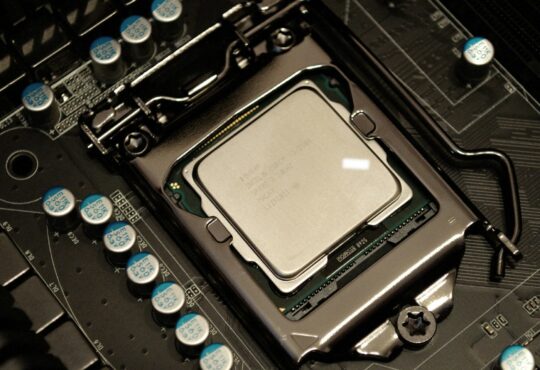Computer maintenance is an essential part of ensuring that your computer runs smoothly and efficiently. Neglecting regular maintenance can lead to slow performance, errors, and even hardware failure. However, with a little bit of effort and knowledge, anyone can perform routine maintenance on their computer to keep it in top shape. This can help extend the lifespan of your computer and prevent potential problems from arising. Here are some simple steps you can follow to perform basic computer maintenance.
1 – Keep your computer updated
Keeping your operating system and software up-to-date is an essential aspect of computer maintenance. Outdated software can be a security risk and cause compatibility issues with newer programs. To update your operating system, you can navigate to “Settings” on your PC and then select Windows update. Ensuring you have the latest versions will help protect your computer from security threats and potentially fix bugs or glitches. You can typically set your computer to automatically check for OS updates but you will still have to keep an eye on some of the individual software you use.
2 – Run regular scans for viruses and malware
In addition to updating your software, it’s also important to run regular virus and malware scans to protect your computer from potential threats. They can cause a range of problems, from slowing down your computer to stealing your personal information or even locking down the entire system with ransomware. To protect your computer, it’s important to use trustworthy antivirus software and regularly scan for malicious software, as new ones are constantly being created.
3 – Clean up your hard drive
Over time, your hard drive can become cluttered with temporary files, old software, and other unnecessary junk. This can cause your computer to run slower and take up valuable storage space. To clean up your hard drive, you can use the built-in tools in your operating system to delete temporary files. You should also uninstall any old software that you no longer use to free up even more space. Additionally, you can use a program specifically designed to help you clean up your hard drive. They will help you search for and delete unnecessary files.
4 – Regularly check for and fix disk errors
Your computer’s hard drive can develop errors over time, which can cause problems with your computer’s performance. To check for and fix disk errors, you can use the “Check Disk” tool in Windows. To find it, simply type CHKDSK in your search bar.
5 – Defragment your hard drive
Over time, the data on your hard drive can become fragmented, which can cause your computer to run slower. To defragment your hard drive, you can use the built-in tools in your operating system. In Windows, the option you should look for is “Defragment and Optimize Drives”. To see if your disk needs to be defragmented simply click “Analyze” once you have found the tool.
6 – Physical computer maintenance
Another important part of computer maintenance is cleaning the physical hardware. Over time, dust and debris can build up inside your computer and cause it to overheat. This can lead to slower performance and even hardware failure. To clean your computer, you’ll need to open the case and carefully clean the inside using a can of compressed air. Be sure to unplug your computer as a precaution before opening the case. In addition to cleaning the inside of your computer, you should also clean the keyboard and monitor regularly. Simply use a soft, damp cloth to wipe them down.
7 – Back up regularly
Finally, it’s important to back up your data regularly to protect against data loss. There are many different ways to do this, such as using an external hard drive, cloud storage, or a simple USB drive. It’s best to have multiple backups in case one fails and to perform them regularly to ensure that your data is up to date.
In conclusion, regular computer maintenance is essential to keep your computer running smoothly and efficiently. By cleaning up your hard drive, keeping your operating system and software up to date, running regular virus and malware scans, cleaning the physical hardware, and backing up your data, you can ensure that your computer stays in top shape. Regular computer maintenance can help extend the lifespan of your computer and keep it running at its best.





